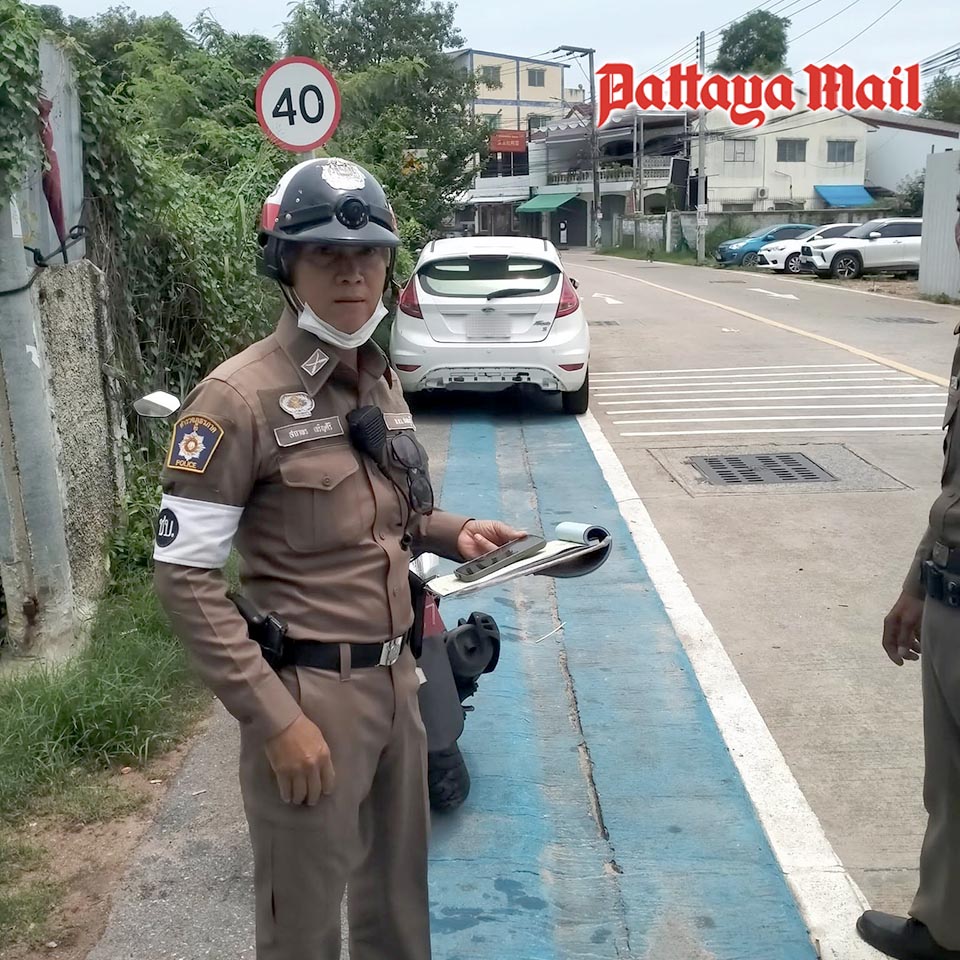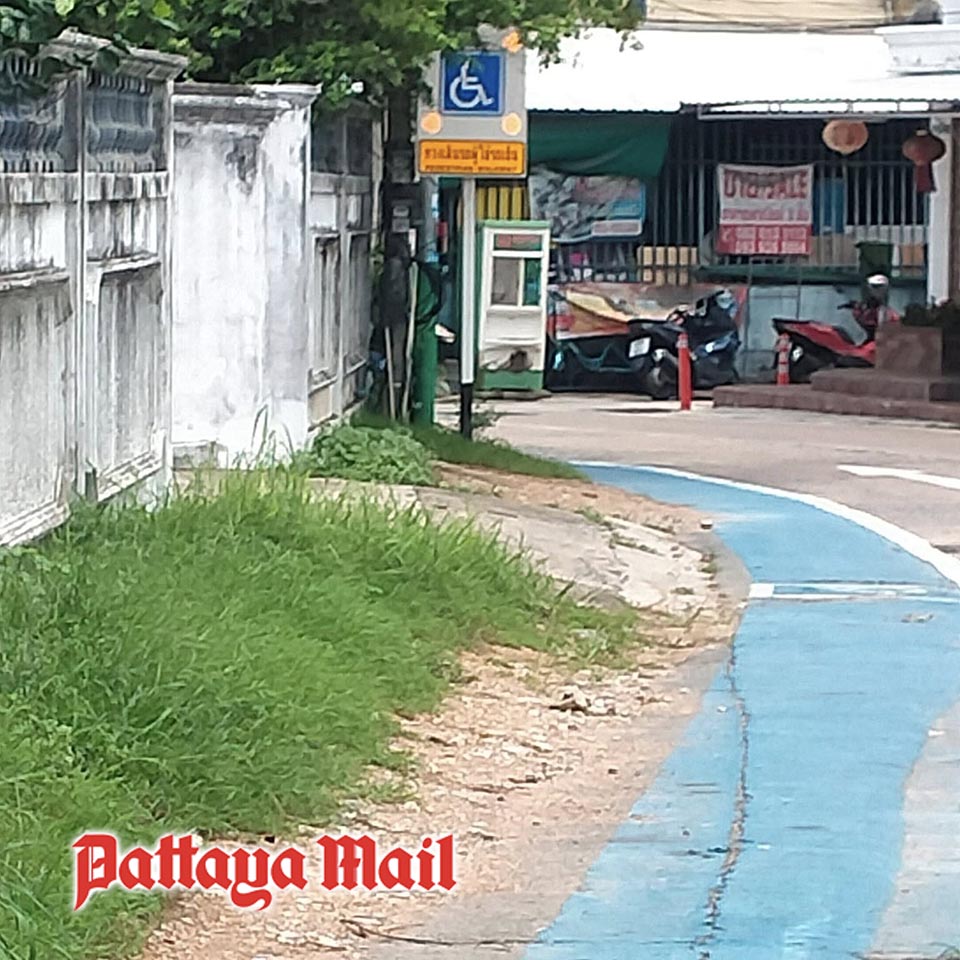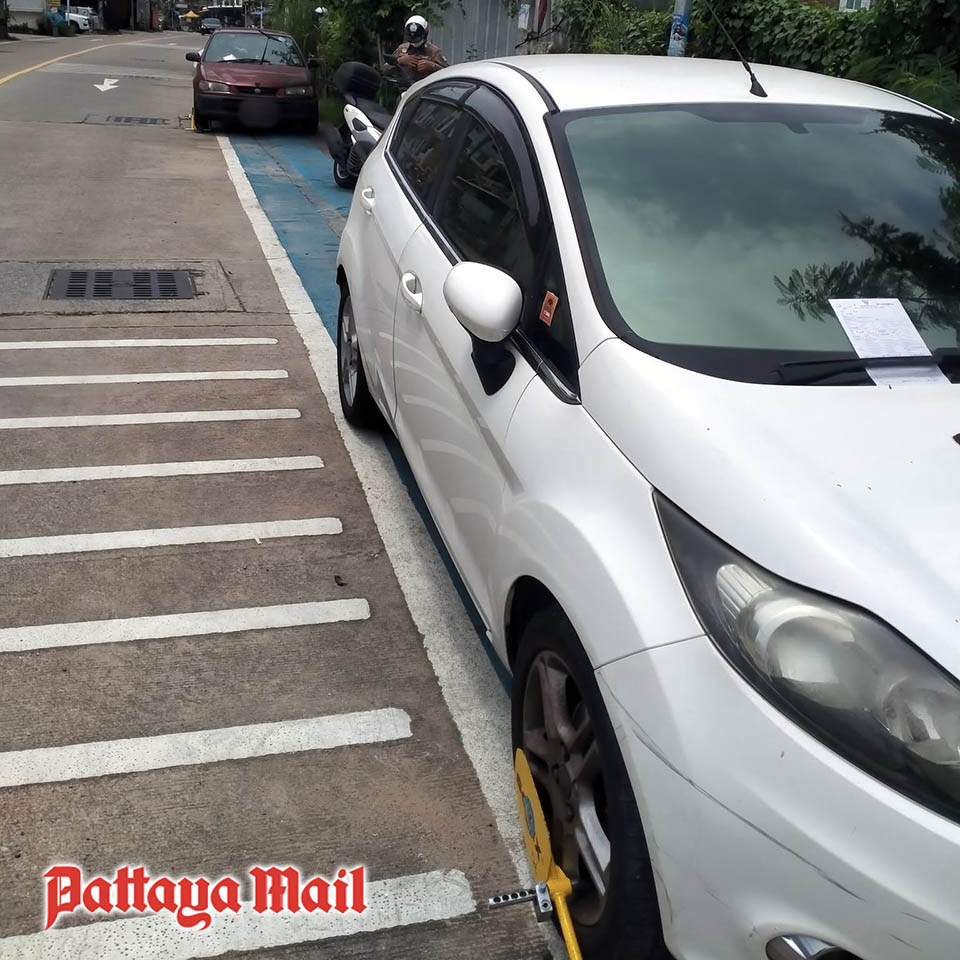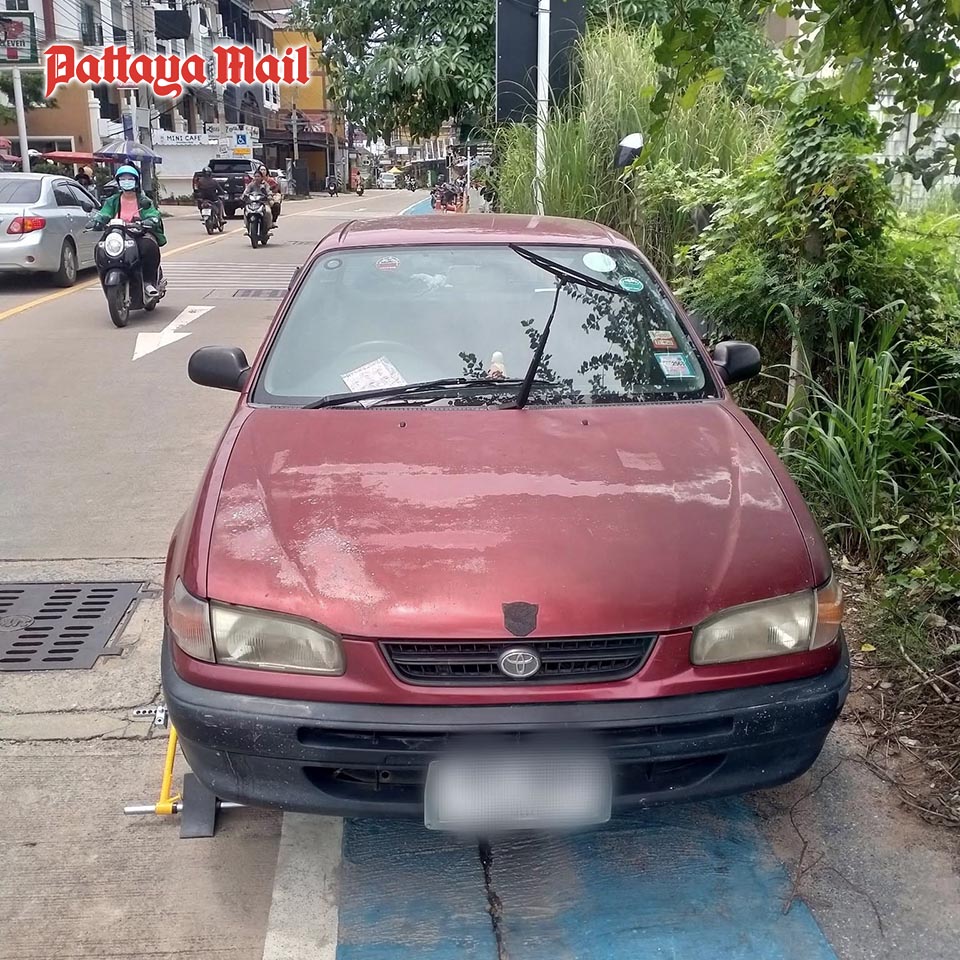
PATTAYA, Thailand – Pattaya municipal officers, in collaboration with traffic police from Pattaya City Police Station, have launched a campaign targeting vehicles illegally parked on pathways designated for wheelchair users. The operation took place in Soi Paniadchang, located behind Big C Central Pattaya, where authorities issued tickets and fines to offending drivers.
The initiative aims to restore public walkways and ensure safe, unhindered mobility for people with disabilities. Authorities acted in response to repeated complaints from residents, who say the issue has persisted for years. Locals report that sidewalks and designated paths are frequently blocked by careless drivers, forcing wheelchair users onto the road and putting their safety at serious risk.
The public reaction has been overwhelmingly supportive. Online, residents voiced approval and shared firsthand accounts of the danger and inconvenience caused by inconsiderate drivers. “This has been happening for years in our neighborhood,” one local wrote. “It’s about time something was done.” Others noted that some drivers even drive through the wheelchair lanes, endangering disabled individuals.
One particularly frustrated resident commented, “These people have full use of their arms and legs, yet they’re completely selfish. Tow the cars and fine them properly. Enough is enough.” Another urged authorities to enforce the law consistently: “If people know they’ll be fined every time, they’ll start obeying the rules. But if it’s hit-or-miss, no one will take it seriously.”
For many, this crackdown is not just about parking violations—it’s about dignity and basic human rights. “Returning the road to disabled people is excellent,” one commenter said. “This is how it should’ve been from the beginning. Show some compassion.”
With the campaign underway, residents are now calling for even tougher measures, such as more signage, stricter penalties, and regular patrols to ensure long-term change. Soi Paniadchang may just become a model for other parts of the city to follow—where accessibility is protected, and carelessness comes at a cost.













